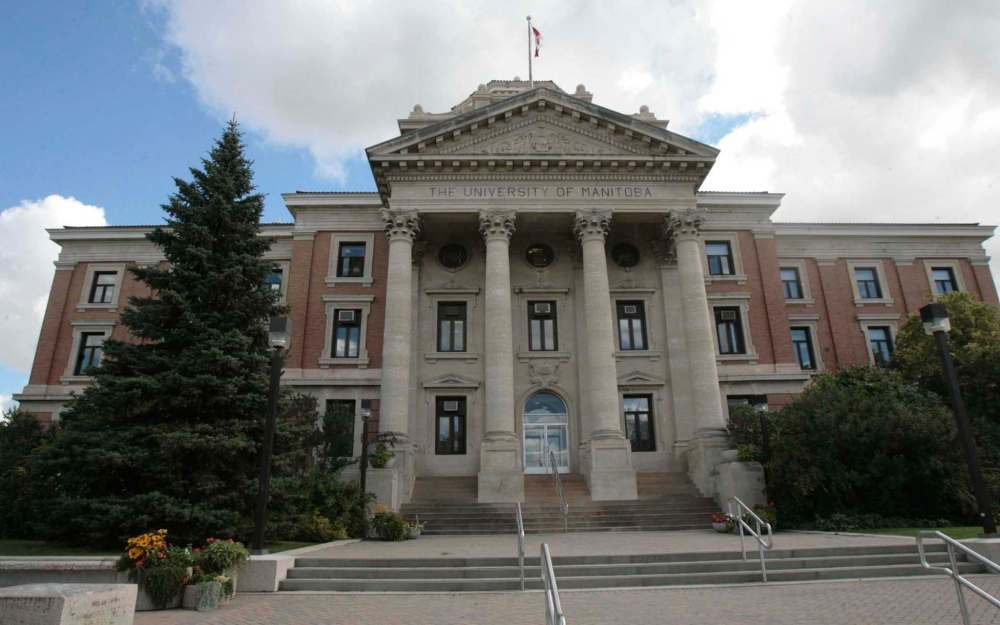U of M to ban student-staff relationships
Independent report outlines sexual violence solutions
Advertisement
Read this article for free:
or
Already have an account? Log in here »
To continue reading, please subscribe:
Monthly Digital Subscription
$0 for the first 4 weeks*
- Enjoy unlimited reading on winnipegfreepress.com
- Read the E-Edition, our digital replica newspaper
- Access News Break, our award-winning app
- Play interactive puzzles
*No charge for 4 weeks then price increases to the regular rate of $19.00 plus GST every four weeks. Offer available to new and qualified returning subscribers only. Cancel any time.
Monthly Digital Subscription
$4.75/week*
- Enjoy unlimited reading on winnipegfreepress.com
- Read the E-Edition, our digital replica newspaper
- Access News Break, our award-winning app
- Play interactive puzzles
*Billed as $19 plus GST every four weeks. Cancel any time.
To continue reading, please subscribe:
Add Free Press access to your Brandon Sun subscription for only an additional
$1 for the first 4 weeks*
*Your next subscription payment will increase by $1.00 and you will be charged $16.99 plus GST for four weeks. After four weeks, your payment will increase to $23.99 plus GST every four weeks.
Read unlimited articles for free today:
or
Already have an account? Log in here »
Hey there, time traveller!
This article was published 17/09/2019 (2278 days ago), so information in it may no longer be current.
Banning intimate relationships between students and staff, removing time limits for victims to report sexual violence, and installing a sexual violence resource centre are among the steps the University of Manitoba plans to take after grappling with misconduct cases involving faculty over the past decade.
The Winnipeg-based university released Tuesday a 155-page report co-authored by two independent investigators. After conducting numerous interviews with members of the U of M community, reviewing the school’s policies and other institutions’ best practices in Canada and the U.S., lawyers Donna Miller and Helga Van Iderstine provided 43 recommendations about how to better fight and prevent sexual violence, discrimination and harassment.
U of M president David Barnard said the school accepts and will implement all the recommendations “in a timely fashion.”

“The University of Manitoba does not condone behaviour that is likely to undermine our dignity and self-esteem or productivity of any of its members, and prohibits any form of discrimination or harassment, whether it occurs on university property or in conjunction with university-related activities,” Barnard said during his opening remarks Tuesday.
“We’re committed to a safe, inclusive and respectful work and learning environment, free of sexual violence and harassment.”
The “Path Forward” report was made public after a roughly 50-minute community session in an auditorium on the Fort Garry campus.
Van Iderstine explained to the audience — which consisted of around 200 students and staff — how she and Miller went about gathering findings, emphasizing the pair did not reopen past investigations the school had conducted, but reviewed files for reference.
Barnard later took seven questions from the floor. His answers often pointed students or staff to read the as-yet-unreleased report and emphasized the next steps would be the university’s to “own.”
An implementation committee, including some of the school’s highest-ranking officials, has already been started.
Digvir Jayas (vice-president of research and international), John Kearsey (vice-president of external relations) and Janice Ristock (provost and vice-president) are on the committee, while vice-president of administration Lynn Zapshala-Kelln will serve as chairwoman.
Some students the Free Press spoke to after the session were “cautiously optimistic” it marked the beginning of a new chapter at U of M, in which sexual violence would be taken more seriously.
Karan Saxena, a member of Students for Consent Culture Canada, was looking for more clarity on how students could get involved with the implementation committee. He planned to read the hefty report between his five classes.
“Sexual violence is being brought to everyone’s front burners now, and I’m excited to see how they’re going to use student voices to tackle that,” he said.
Sarah Bonner-Proulx, University of Manitoba Students’ Union vice-president of advocacy, was glad to hear independent voices back an idea UMSU has long-advocated — a sexual violence resource centre — which they hope to see installed during this academic year.
“This is the hallmark of hopefully what is the start of a positive, new beginning when addressing sexual violence, discrimination and harassment on campus,” she said. “I think the university has done some laudable work in addressing this topic, especially over the last year. That being said, time will tell.”
The U of M has lost two high-profile faculty in recent years, as allegations of inappropriate behaviour surfaced.
In June 2017, music professor Steve Kirby retired. He was later charged with sexually assaulting one of his female students — a charge that was stayed in the courts in March.
Peter Jones, former director of the Richardson Centre for Functional Foods and Nutraceuticals, retired earlier this year amid an internal investigation into allegations of inappropriate behaviour — spurred by a Free Press investigation that found multiple complaints dating back a decade.
Last fall, Barnard acknowledged there were five other faculty investigations ongoing, three of which involved allegations of sexual misconduct or assault. He wouldn’t comment Tuesday on what happened with those cases or whether any staff were suspended or fired, citing privacy legislation.
“We can both understand why such constraints would be there, right? Because these are complicated matters and everyone needs to be protected,” he said in an interview after Tuesday’s event.
“There are times when it would be more satisfying to be able to deal with it in a different way, but it’s not the legal context that we have.”
Saxena acknowledged the provincial government ought to review freedom of information laws to allow U of M to divulge more details, otherwise: “How much is the university going to be able to make their own processes transparent?”
jessica.botelho@freepress.mb.ca
Twitter: @_jessbu


